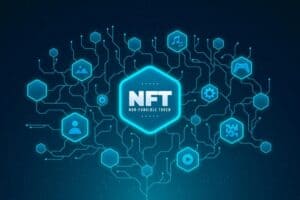In the ever-evolving landscape of healthcare, efficiency and precision are more than just desirable traits—they are essential. With the advent of new technologies, hospitals are seeking innovative solutions to streamline operations, reduce costs, and improve patient outcomes. One such groundbreaking advancement is LeanTaaS’ iQueue Autopilot, the first-ever generative AI solution designed specifically for hospital operations. This article delves into the intricacies of iQueue Autopilot, exploring how it is set to revolutionize the healthke industry.
Table of Contents
What is iQueue Autopilot?
LeanTaaS, a leader in AI-powered hospital operations solutions, has introduced iQueue Autopilot, a cutting-edge tool that leverages generative AI to optimize hospital operations. This solution is a game-changer, offering hospitals the ability to automate complex decisions, enhance resource utilization, and ultimately improve the quality of care provided to patients.
The Need for Generative AI in Healthcare
In today’s fast-paced healthcare environment, the demand for efficient operations is at an all-time high. Hospitals are under constant pressure to manage resources effectively while maintaining high standards of patient care. Traditional methods of decision-making, often reliant on manual processes and static algorithms, are no longer sufficient. This is where generative AI steps in, offering a dynamic, data-driven approach to operational challenges.
How iQueue Autopilot Works
iQueue Autopilot uses advanced machine learning algorithms to analyze vast amounts of data, identify patterns, and make real-time decisions. The system continuously learns and adapts, allowing it to predict future operational needs and optimize accordingly. Whether it’s scheduling surgeries, managing patient flow, or allocating resources, iQueue Autopilot ensures that hospitals operate at peak efficiency.
Key Features of iQueue Autopilot
1. Real-Time Decision Making
One of the standout features of iQueue Autopilot is its ability to make real-time decisions. By analyzing data from various sources, the system can instantly adjust operations to meet the changing needs of the hospital. This agility is crucial in environments where every second counts.
2. Predictive Analytics
iQueue Autopilot is not just reactive; it is also proactive. The system uses predictive analytics to forecast future operational demands, enabling hospitals to plan ahead and avoid potential bottlenecks. This foresight can significantly reduce wait times, improve patient satisfaction, and increase the overall efficiency of the hospital.
3. Automated Resource Allocation
Managing resources in a hospital setting is a complex task. iQueue Autopilot simplifies this process by automatically allocating resources based on real-time data. Whether it’s assigning staff to critical areas, scheduling equipment, or optimizing bed utilization, the system ensures that resources are used efficiently.
4. Scalability and Flexibility
Hospitals vary in size, capacity, and operational needs. iQueue Autopilot is designed to be scalable and flexible, making it suitable for hospitals of all sizes. Whether a small community hospital or a large metropolitan medical center, the system can be tailored to meet specific operational requirements.
5. Enhanced Patient Outcomes
At its core, iQueue Autopilot is about improving patient outcomes. By streamlining operations and reducing inefficiencies, the system ensures that patients receive timely care, leading to better health outcomes and higher levels of patient satisfaction.
Benefits of Implementing iQueue Autopilot
1. Cost Reduction
One of the most significant benefits of iQueue Autopilot is its ability to reduce operational costs. By optimizing resource utilization and minimizing waste, hospitals can save money while still providing high-quality care.
2. Improved Operational Efficiency
Efficiency is the backbone of any successful hospital operation. iQueue Autopilot enhances efficiency by automating routine tasks, reducing manual errors, and ensuring that operations run smoothly.
3. Increased Patient Satisfaction
When hospitals operate efficiently, patients benefit. Reduced wait times, faster treatment, and a seamless care experience all contribute to higher patient satisfaction levels.
4. Better Staff Utilization
iQueue Autopilot ensures that staff are utilized effectively, reducing burnout and improving job satisfaction. By automating mundane tasks, the system allows healthcare professionals to focus on what they do best—caring for patients.
5. Data-Driven Decision Making
With iQueue Autopilot, decisions are no longer based on intuition or guesswork. The system provides data-driven insights that enable hospital administrators to make informed decisions that positively impact the entire organization.
How iQueue Autopilot Stands Out from Competitors
1. The First-Ever Generative AI for Hospital Operations
While there are many AI solutions available, iQueue Autopilot is the first to harness the power of generative AI specifically for hospital operations. This innovative approach sets it apart from other solutions that rely on traditional AI models.
2. Comprehensive Solution
iQueue Autopilot is not just a tool for one aspect of hospital operations; it is a comprehensive solution that addresses multiple areas, including scheduling, resource allocation, and patient flow management.
3. Continuous Learning and Adaptation
Unlike static algorithms, iQueue Autopilot continuously learns and adapts to the hospital’s unique needs. This ability to evolve ensures that the system remains effective even as the hospital’s operational landscape changes.
4. Proven Track Record
LeanTaaS has a proven track record of success in the healthcare industry, with many hospitals already reaping the benefits of their AI solutions. iQueue Autopilot builds on this legacy, offering an even more advanced tool for hospital operations.
Case Studies: Success Stories with iQueue Autopilot
1. Case Study 1: Improving Surgery Scheduling Efficiency
A large metropolitan hospital implemented iQueue Autopilot to optimize its surgery scheduling process. The result? A 20% reduction in surgery wait times and a significant increase in patient throughput. This improvement not only enhanced patient satisfaction but also increased the hospital’s revenue.
2. Case Study 2: Enhancing Resource Allocation in a Community Hospital
A small community hospital faced challenges with resource allocation, leading to inefficiencies and increased costs. After adopting iQueue Autopilot, the hospital saw a 15% reduction in operational costs and a more streamlined workflow.
3. Case Study 3: Reducing Patient Wait Times in an Emergency Department
An emergency department struggling with long patient wait times turned to iQueue Autopilot for a solution. The system’s predictive analytics and real-time decision-making capabilities led to a 30% reduction in wait times, significantly improving patient outcomes.
The Future of Hospital Operations with iQueue Autopilot
The introduction of iQueue Autopilot marks the beginning of a new era in hospital operations. As more hospitals adopt this technology, we can expect to see widespread improvements in efficiency, cost reduction, and patient outcomes. The future of healthcare is here, and it is being shaped by generative AI.
Conclusion
iQueue Autopilot by LeanTaaS is not just another AI solution; it is a revolutionary tool that has the potential to transform hospital operations. By leveraging the power of generative AI, this system offers hospitals the ability to automate complex decisions, optimize resource utilization, and ultimately improve the quality of care provided to patients. As the healthcare industry continues to evolve, iQueue Autopilot stands out as a beacon of innovation, guiding hospitals toward a more efficient and effective future.
FAQs
1. What is iQueue Autopilot?
iQueue Autopilot is a generative AI solution developed by LeanTaaS that optimizes hospital operations through real-time decision-making, predictive analytics, and automated resource allocation.
2. How does iQueue Autopilot improve hospital efficiency?
By analyzing data and making real-time decisions, iQueue Autopilot streamlines hospital operations, reducing wait times, optimizing resource allocation, and improving patient outcomes.
3. Can iQueue Autopilot be customized for different hospitals?
Yes, iQueue Autopilot is scalable and flexible, making it suitable for hospitals of all sizes. It can be tailored to meet specific operational needs.
4. What are the cost benefits of using iQueue Autopilot?
iQueue Autopilot reduces operational costs by optimizing resource utilization, minimizing waste, and improving overall efficiency.
5. How does iQueue Autopilot differ from other AI solutions?
iQueue Autopilot is the first-ever generative AI solution specifically designed for hospital operations, offering a comprehensive, continuously learning system that adapts to the unique needs of each hospital.












